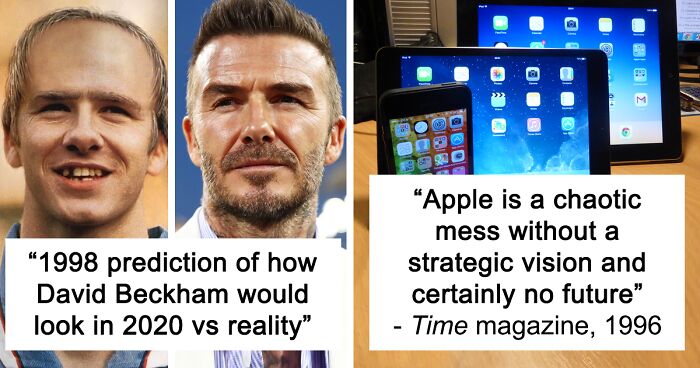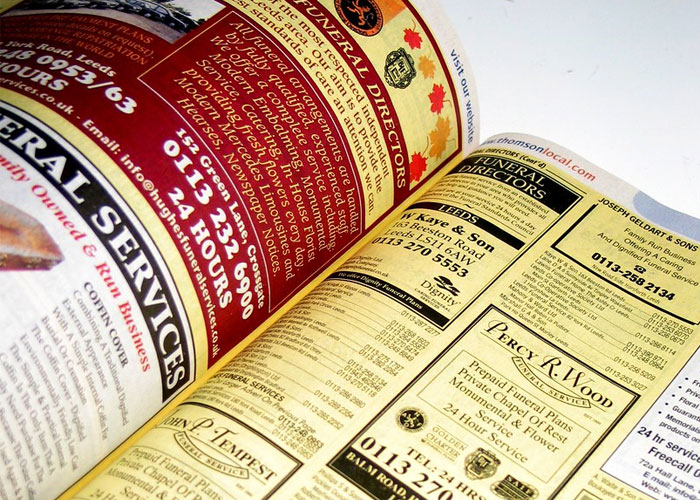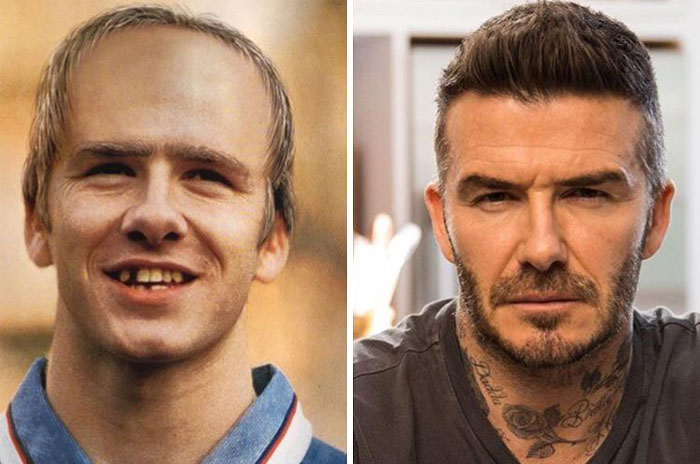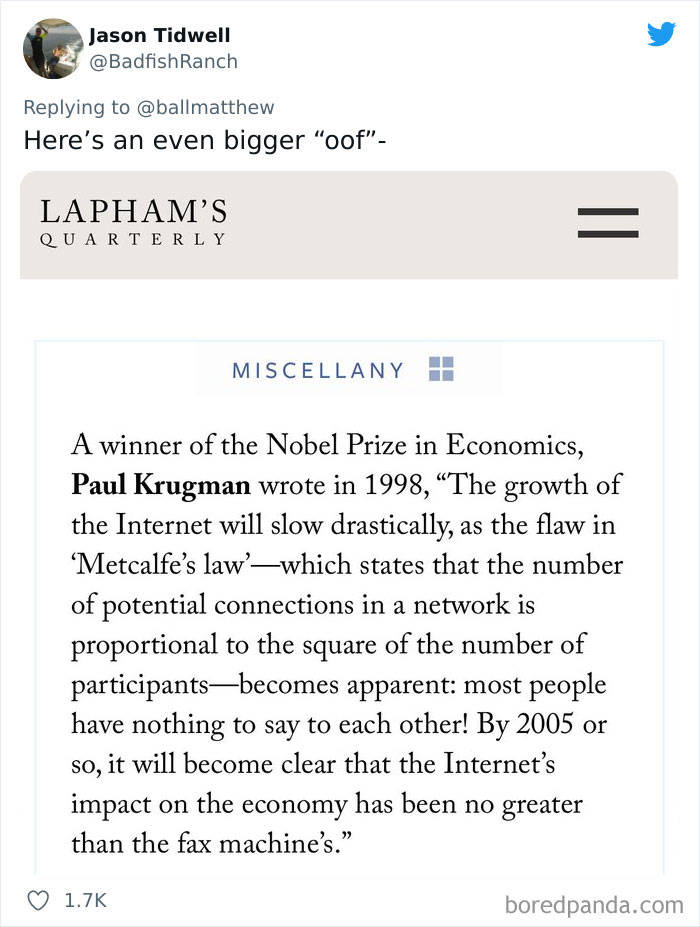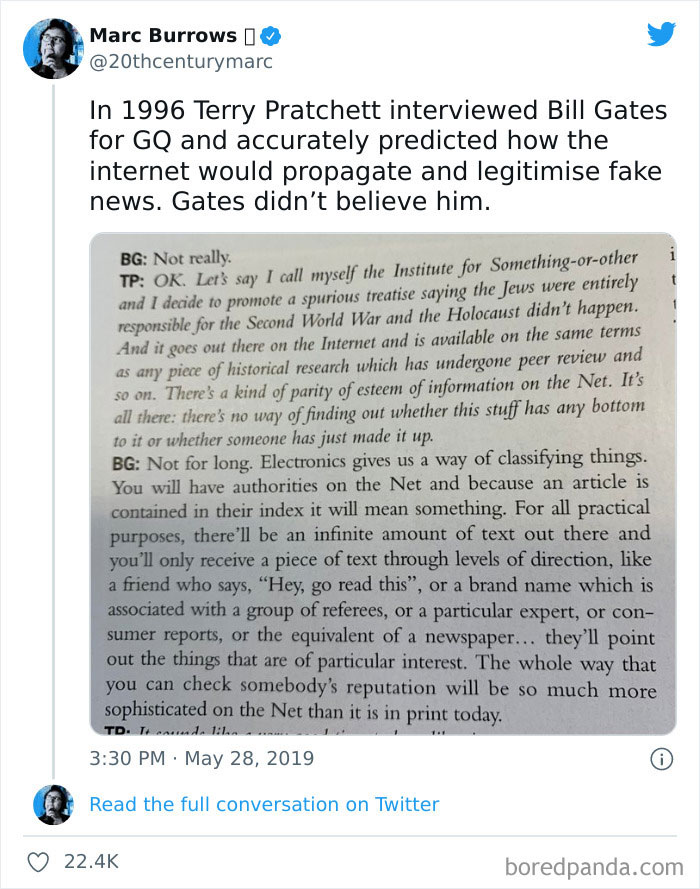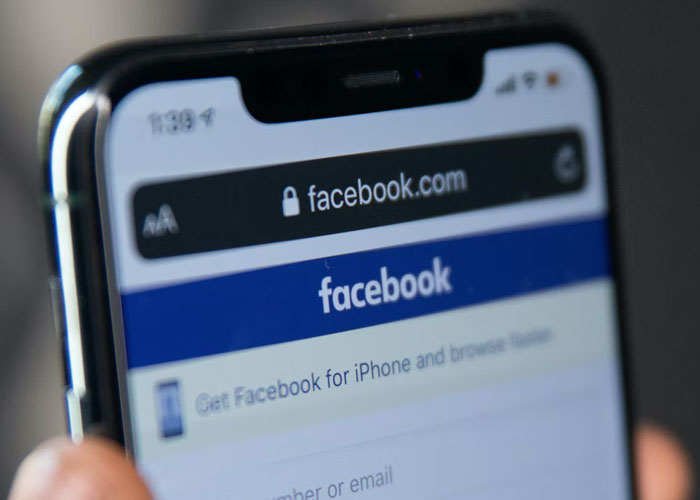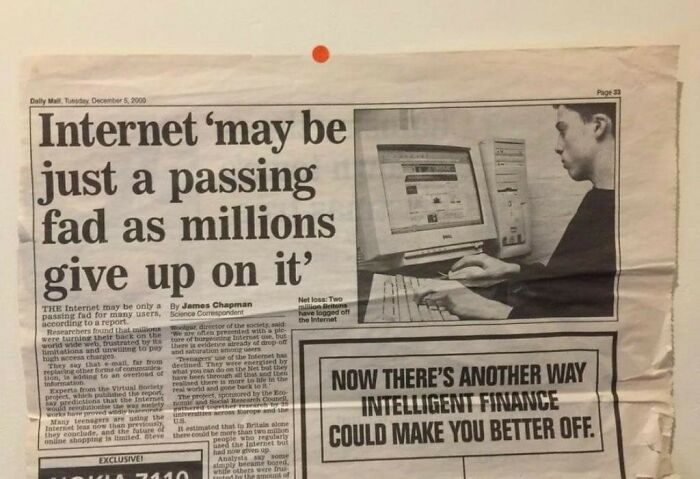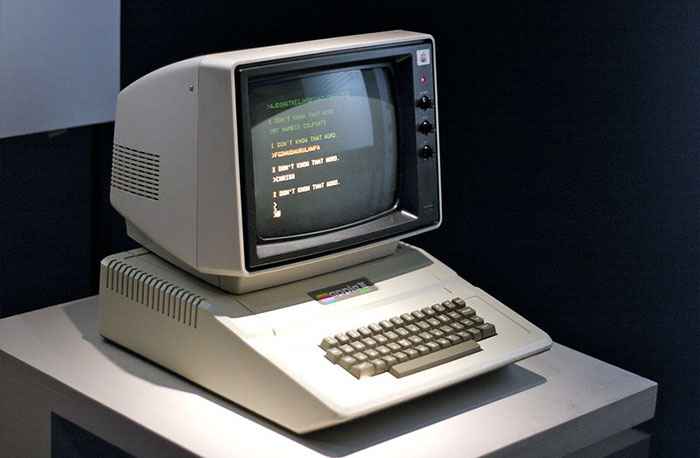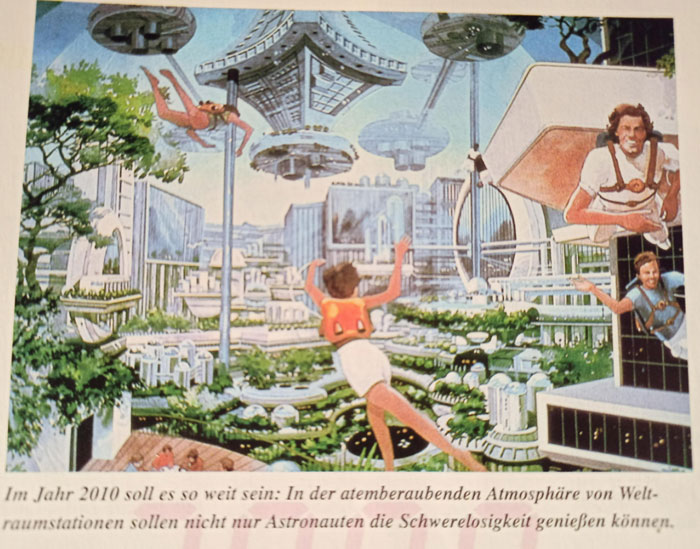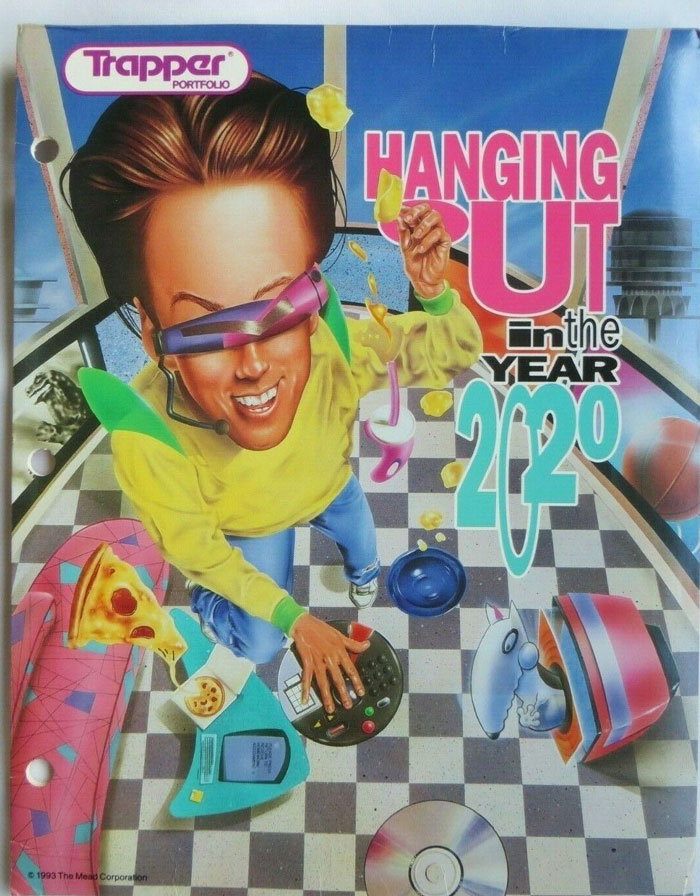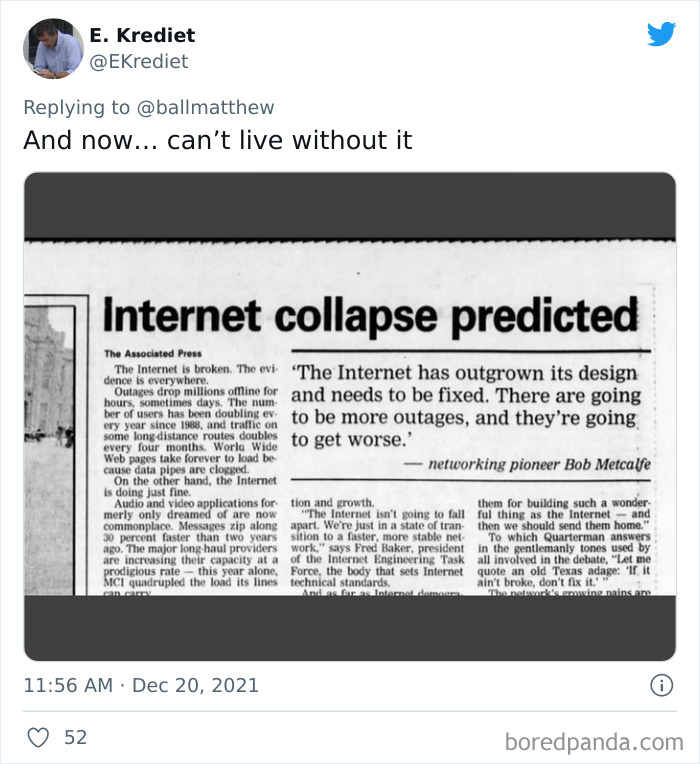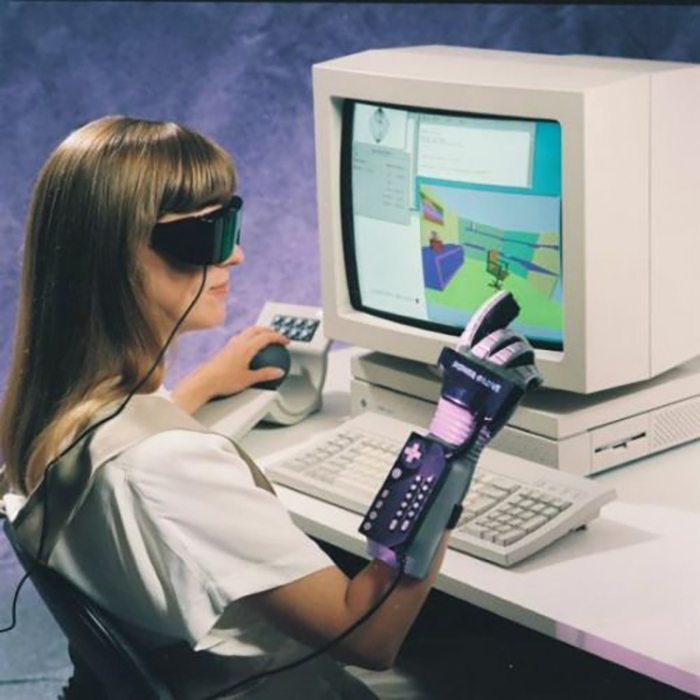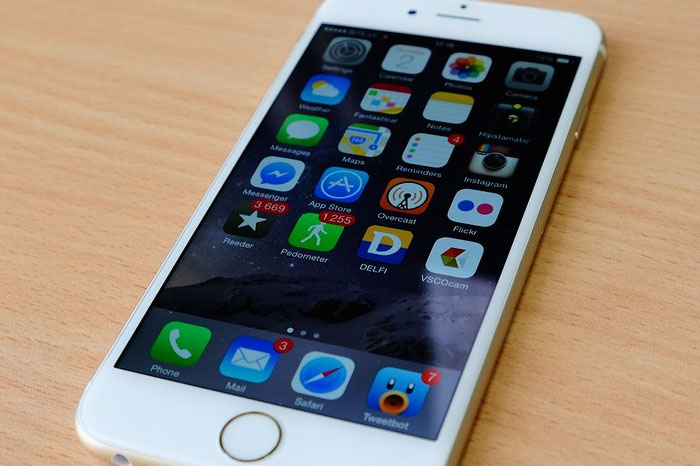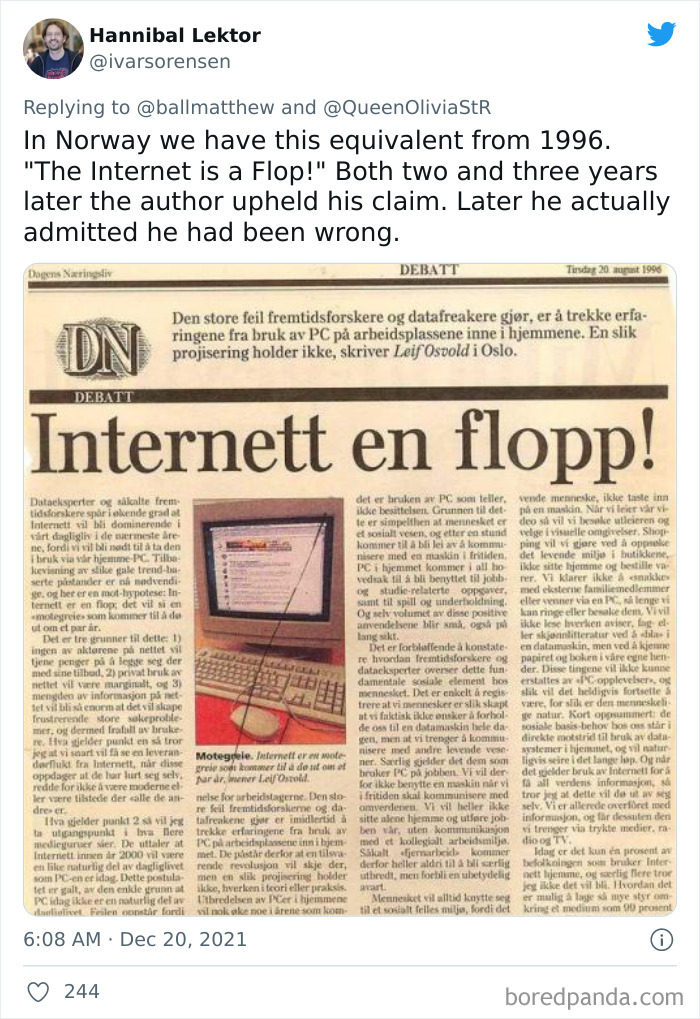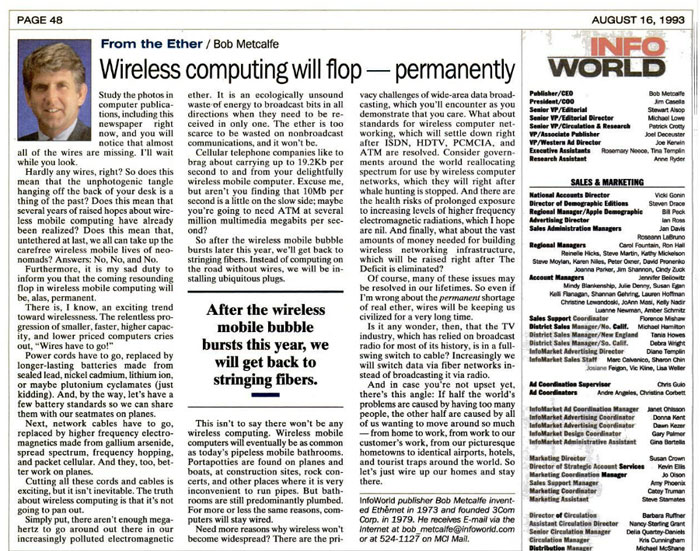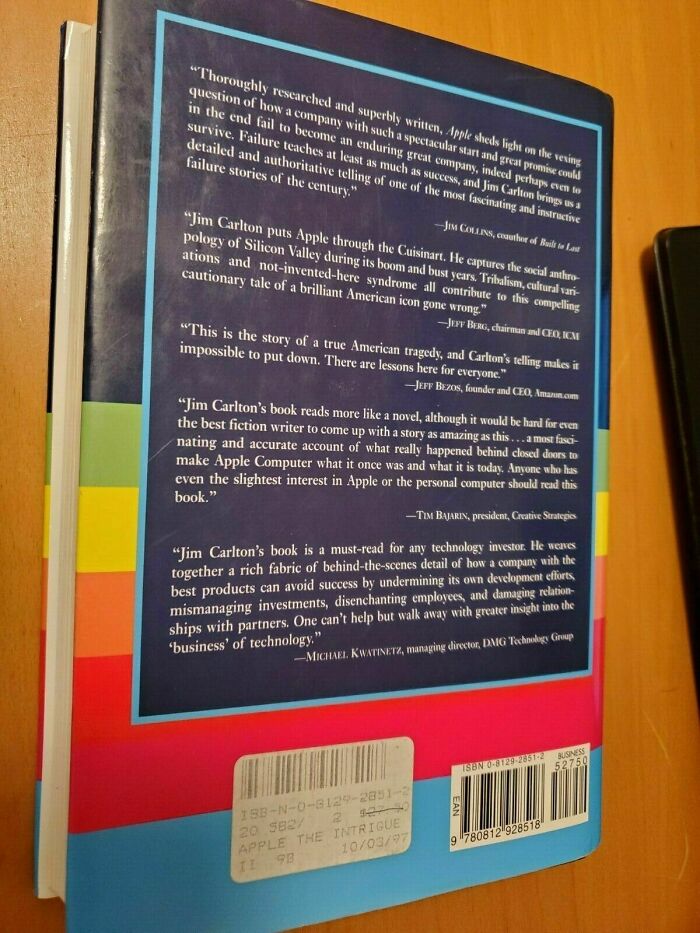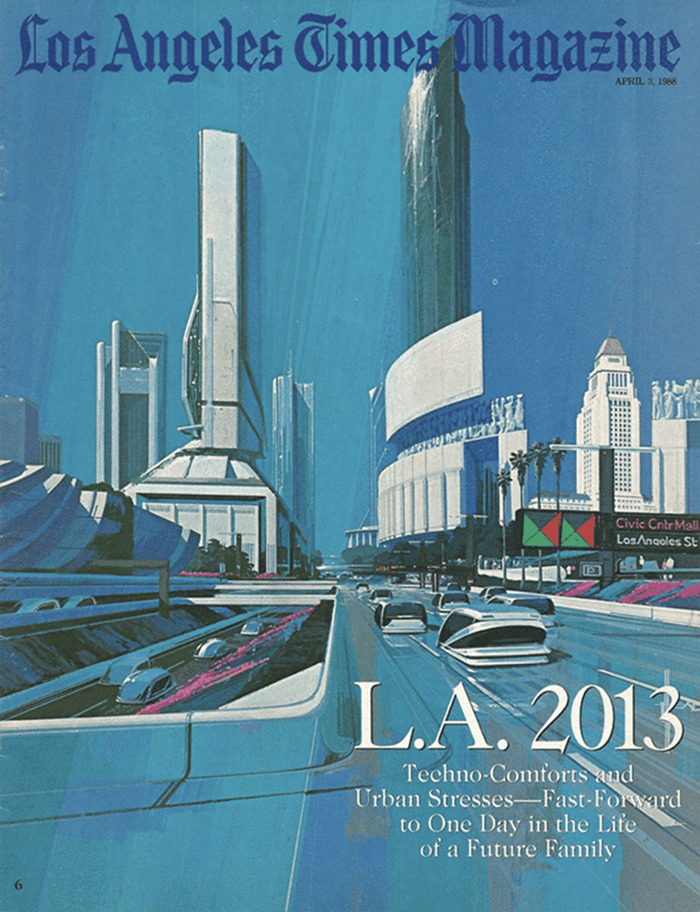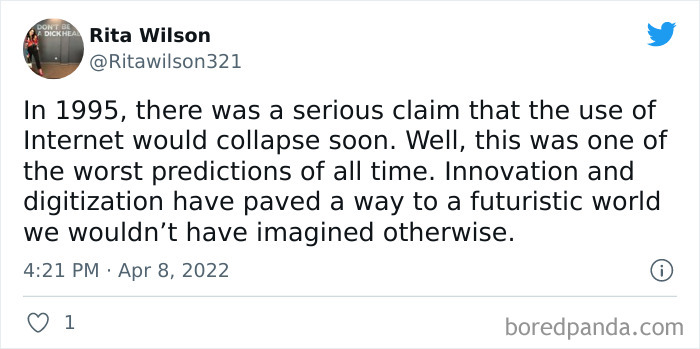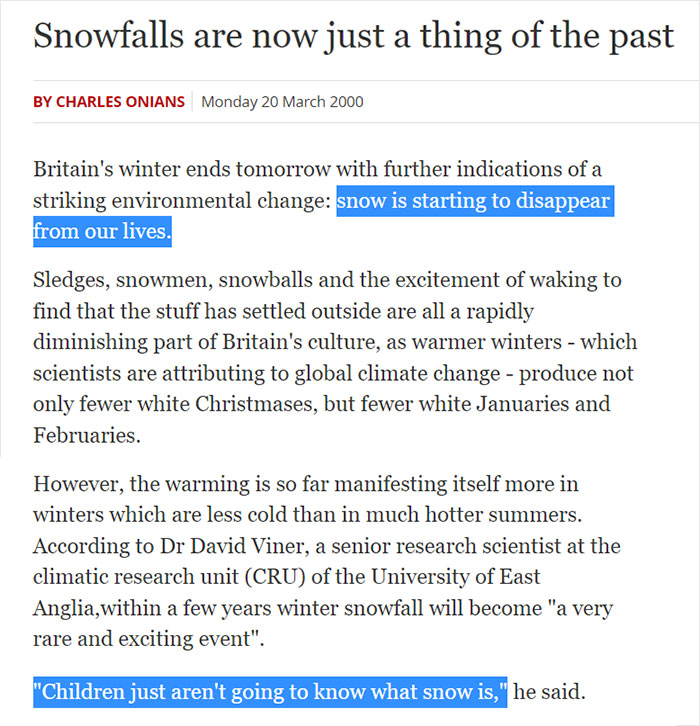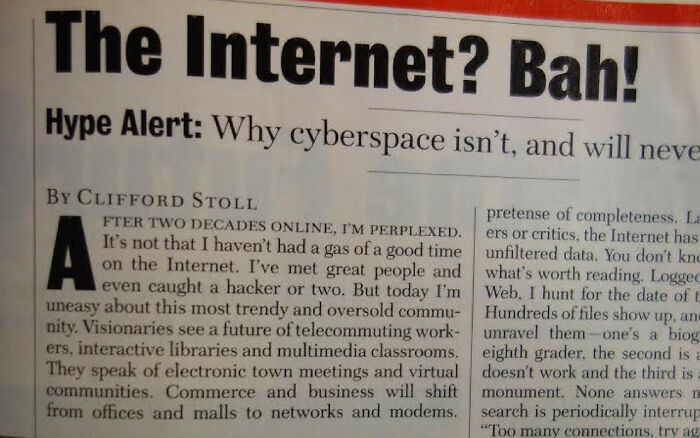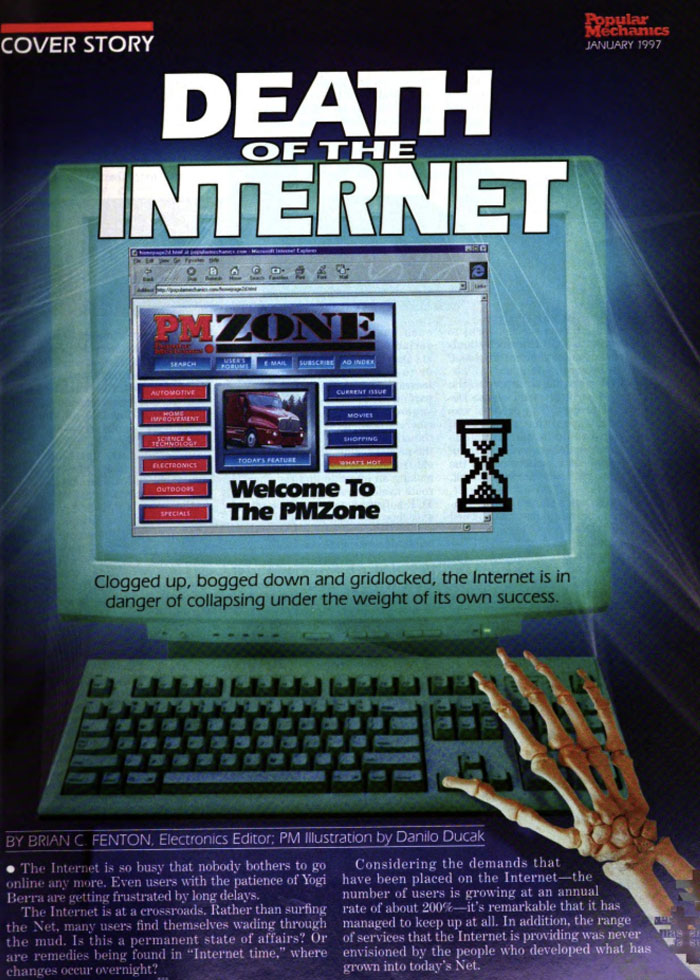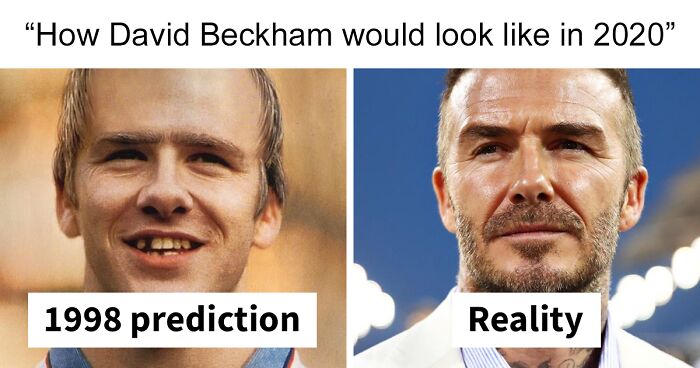
30 ’90s Predictions About The Future We Can Laugh At Since None Of Them Were Correct
Ah, the 90's. As with any decade in the past, the 1990's can be an extremely nostalgic time for many to reminisce on. From the classic sitcoms of Friends and Seinfeld to the catchy bops of the Spice Girls and Backstreet Boys, the 90's gave us so many gifts. But aside from being an excellent era for pop culture, not everything from this decade could withstand the test of time. Along with the piles of ginormous JNCO jeans sent off to local thrift stores as they faded out of style, some predictions made in the 90's can be funny to look back on as well.
Inspired by a newspaper article from 2000 titled "Internet May Be Just A Passing Fad As Millions Give Up On It" going viral on Twitter, we began digging up other hilariously inaccurate predictions from the past. Although these claims about the future did not ring true, they certainly are amusing to read today. Below you'll also find an exclusive interview featuring Dan Gardner, author of "Future Babble : Why Expert Predictions Fail - and Why We Believe Them Anyway" and "Superforecasting - The Art and Science of Prediction".
Enjoy this comical list we've compiled at Bored Panda, and keep in mind what Forrest Gump so wisely told us in 1994, "Life is like a box of chocolates, you never know what you're going to get."
This post may include affiliate links.
"Two years from now, spam will be solved" - Bill Gates, 2004
We've all heard the phrase "history repeats itself". Often uttered by middle school teachers trying to convince their students of the value of their education, this saying does bear some truth. There are clear similarities between Napoleon and Hitler's attempted invasions of Russia, greatly hyped ships sinking such as the Titanic and the Vasa, and The Great Depression compared to 2008's Great Recession. Even much smaller cultural aspects, such as fashion and beauty trends, recycle over time. It makes sense for people to use their understanding of history to make predictions about the future.
However, no matter how well informed our predictions are, they are still merely guesses. Remember the group of people warning that the world was supposed to end in 2012? Thankfully, they were misinformed. But why do we feel the need to make proclamations rather than simply living in the moment and waiting to see what will come? As naturally curious creatures, people are often searching for some semblance of control. "We have a strong psychological aversion to uncertainty," author Dan Gardner told us in our interview with him. "We really hate being unsure! That aversion is so strong that even being told that something bad definitely will happen can feel better than being told that something bad may possibly happen," he explained. If believing we know something about the future can provide a bit of comfort, the temptation to lean into this hope is understandable. Many people love to read their horoscopes and have tarot readings for the same reason.
“I don’t believe that phone books, newspapers, magazines, or corner video stores will disappear as computer networks spread. Nor do I think that my telephone will merge with my computer, to become some sort of information appliance.” “Video-on-demand, that killer application of communications, will remain a dream.” - Clifford Stoll
When we asked Gardner for his expert opinion on what makes us so susceptible to believing false predictions, he told us to first "be careful about what is and isn't possible about prediction". "We can forecast on smaller scales and shorter time frames," he explained. "But we cannot forecast the really big stuff, over the longer time frames, that we most want to forecast!" A tip he gave to remember this is to "think of weather forecasts". "They're actually quite reliable looking a day or two or three ahead. But looking weeks ahead, they're useless. How far ahead we can forecast varies greatly by subject matter but the bottom line is this: Our ability to foresee the future is quite limited -- and it is only a tiny fraction of our desire to foresee the future!"
He went on to say that there is a clear root cause for people falling prey to predictions that they absolutely should not believe, predictions like "here's what the global economy will look like in 2050!". It goes back to psychology.
In 1998, FourFourTwo magazine predicted David Beckham would look like this (left) in 2020. This is how he actually looks like
What moron assumed that he wouldn't have access to good dental care, that he was guaranteed to go bald, and that in 2020, this very rich and very famous London-based superstar, would, for some reason, decide to style himself like a lower-middle class American dad in '89?
"When we are confronted with some major, frightening changes-- like when a crazy man takes office or a pandemic breaks out or a war erupts -- we look into the future and we see that there's a huge number of paths the course of history may take. There's so much uncertainty! That is profoundly unsettling so we go looking for something that will sweep away the uncertainty and replace it with the feeling of knowing." Gardner went on to explain the various coping mechanisms people are likely to take when overwhelmed with the unknown. The first example he notes is finding "a particularly dogmatic form of religion". "Another thing that can replace uncertainty is a conspiracy theory that claims to explain everything. And there's good evidence that interest in dogmatic religion and conspiracy theories goes up during heightened uncertainty."
“You’ll never make any money out of children’s books” – Advice to JK Rowling from Barry Cunningham, editor at Bloomsbury Books, 1996.
“The whole way that you can check somebody’s reputation will be so much more sophisticated on the Net than it is in print today” - Bill Gates
It's not that Bill is wrong, it's just that people don't want to prove themselves wrong. People have beliefs and actively seek information that confirms it and ignore when it says it's wrong. It's called confirmation bias and it pairs nastily with cognitive dissonance.
Lastly, he told us, "A third thing that can sweep away uncertainty is experts who make predictions." But not just any expert will do, he elaborated. "The sort of expert who says 'maybe' or 'it's possible' a lot will not sweep away uncertainty." Only an extremely confident expert will put minds at ease. "They KNOW what's coming! And they have a simple, clear, conclusive story to explain it. That sort of expert gives us the certainty we psychologically crave." This confidence can be comforting initially, but Gardner is sure to note the facts. "Unfortunately, research also shows that the predictions of that sort of expert are especially likely to be wrong."
“I suspect Big Brother won’t have an easy time tracing us. … Our privacy will be protected, as it always has been, by simple obscurity and the high cost of uncovering information about us.” - Clifford Stoll, 1995
"No matter how inexpensive the machines become, I still can't imagine the average user taking one along when fishing." - Erik Sandberg-Diment
When asked if humans have become any better at making predictions in recent years, given the rapid advancements of science and technology, Gardner replied, "Yes, we have seen some improvements in forecasting thanks to science and technology. But they tend to be small, incremental improvements." "And every additional advance is harder to make than the improvements that preceded it," he added. He used weather forecasting over the past 100 years as an example. "The bottom line: We are somewhat better at forecasting than we were in the past but we are still pretty bad at it and the big things that we most want to forecast -- 'What will Russia look like in 10 years? Is the era of globalization over? Will our children be poorer than we are?' -- are all far beyond our power to predict."
"The idea of a personal communicator in every pocket is a 'pipe dream driven by greed'." - Andy Grove, then CEO if Intel (1992)
In 1993, internet expert John Allen told CBC that he believed that our own moral code and internal rules would stop people from doing horrible things online.
"There's not a lot of cursing, or swearing. One would think if you're anonymous you could do anything you want, but people in a group have their own sense of community and what we can do."
Clifford Stoll being sceptical about online shopping, which is basically how everyone buys stuff now: "We’re promised instant catalogue shopping–just point and click for great deals. We’ll order airline tickets over the network, make restaurant reservations and negotiate sales contracts.
Stores will become obsolete. So how come my local mall does more business in an afternoon than the entire Internet handles in a month? Even if there were a trustworthy way to send money over the Internet—which there isn't—the network is missing a most essential ingredient of capitalism: salespeople."
Given his expertise on the topic, we asked Gardner if he finds it difficult to avoid making predictions in a society that seems perpetually obsessed with what is coming next. "The really frustrating thing is that it's impossible to NOT make predictions," he explained. "All of our decisions, explicitly or implicitly, are based on expectations of future conditions. That is, forecasts. There's no way around it. If you set a time and place to meet someone for a beer after work, your expectations of when work will end, how much traffic there will be, how busy the pub will be, etc, are all part of your decision. And they're all forecasts." His advice in a world consumed by prediction is to "recognize that we are making forecasts all the time and learn to distinguish between those that people can reasonably make (when traffic will be busy, for example) and those that we cannot possibly make with any accuracy (how strong the economy will be in a decade)." When it comes to making important decisions, Gardner says that we must "develop the habit of thinking that the future could unfold across a very wide range. So it's not one future you want to predict and prepare for. It's a great many futures. Or to put that more simply, for the big picture stuff, we have to stop thinking of 'one future' and think of, and prepare, for 'many futures'."
If you are interested in delving deeper into the elusive prediction after finishing this article, be sure to check out Dan Gardner's books or his newsletter "PastPresentFuture".
"...Apple [is] a chaotic mess without a strategic vision and certainly no future." (1996)
This book from 1999 thought this was gonna be space in 2010. Needless to say, that didn't happen.
I was really hoping that by now we would be living like the Jetsons or at least like Back to the Future 2
"HANGING OUT IN THE YEAR 2020" Trapper Keeper from 1993
And consuming all kinds of entertainment there at home (even if the devices obviously are not spot on)
Load More Replies...that picture literally could have been taken in my living room in 2020. Damned floating pizza was always a problem. So were dogs emanating from my TV
He's alone, inside, and clearly playing on a VR headset, so this is right. Shame about us not having such bodacious furniture, though.
How the 90s imagined the future, they couldn't get out of the 90s. Same style of clothes and furniture, just slightly mechanic.
...is that an occulus with headset he's wearing? Seems pretty spot on.
I thought the blue circle was a roomba, but apparently is't a plate and they thought we'd have lost gravity by now.
If you take the obvious 90s style out of the picture and the floating food, you could explain all of this with today's technology. Almost like it was being described to the artist by someone that was seeing it.
Unfortunately, making false forecasts is still the norm rather than the exception. Our brains are full of biases that make it extremely hard to make predictions, even when adequate information is available. "For example, psychologists have shown that people very easily convince themselves that a random bit of good luck was, in fact, the result of skill," Gardner mentioned in a previous interview. "Even when the task at hand is guessing which side of a coin will turn up when it is flipped - the very symbol of randomness - people are easily convinced that their correct guesses were the result of skill, not luck."
I mean, this one isn't really wrong, is it? Dial-up was slow and unreliable. It was "fixed" when DSL came along and for the first time we had a reliable, high-speed, always-on internet connect that didn't tie up the phone line. And the innovations in connectivity keep coming.
Virtual reality, 90's perspective
“Admit it, you’re out of the hardware game.” - Wired Magazine challenges Apple to face up to the ‘fact’ that it can’t compete with other gadget makers, 1996
It only took 10 years after that to come up with their flagship and savior. Hooray!!!
In her article "The Psychology of Prediction", Morgan Housel sheds light on many facets of our belief in predictions. One thing she notes is that "credibility is not impartial". "Your willingness to believe a prediction is influenced by how much you need that prediction to be true." For example, when we are in desperate situations, we are much more susceptible to believing grand predictions. A notable historical example of this is The Great Plague of London in 1665.
“When high-bandwidth links allow every home to access animated, talking, holographic computerized encyclopedias, I can’t help thinking that kids still won’t use ’em.” - Clifford Stoll
In the September 4, 1998, edition of the Amarillo Daily News in Texas, writer Amy Tao made a few predictions about what life may look like in 20 years—most importantly stating that human cloning will be commonplace. "Cloning will be a big thing. Despite moral activist protests, clones of animals and human beings walk the earth. Don't feel like going to school? Send your clone! What if your dog dies suddenly? Just take out the clone of him!" she writes.
Futurist Ray Kurzweil predicted in 1999 that human life expectancy would rise to "over one hundred" by 2019
This could be closer to true if health care was available to more people.
When writing about the Great Plague of London in 1722, Daniel Defoe wrote, "The people were more addicted to prophecies and astrological conjurations, dreams, and old wives’ tales than ever they were before or since … almanacs frighted them terribly … the posts of houses and corners of streets were plastered over with doctors’ bills and papers of ignorant fellows, quacking and inviting the people to come to them for remedies, which was generally set off with such flourishes as these: Infallible preventive pills against the plague. Neverfailing preservatives against the infection. Sovereign cordials against the corruption of the air." Over the course of 18 months, this plague wiped out a quarter of London. It was only natural for these people to grasp to any sliver of hope they could find.
"By the turn of the century, we will live in a paperless society." —Roger Smith, chairman of General Motors, 1986
This isn't that far off... Didn't some American schools stop teaching cursive?
It's so weird to realise just how boring and empty the internet was then. It was like a box of books no-one wanted to read. I mean there was a search engine (Explorer) but no content. None. You could type in MUSIC, I mean (what) and nothing would result. I can't even begin to describe how pointless it seemed.
that guy looks like he hosts those boring office parties that nobody likes but goes to for the free coffee. smh
Another factor is "outcome-irrelevant learning". This is when people essentially cherry pick information from a historical event to confirm their own ideas and biases. It reinforces one's confidence in their predictions through the belief that evidence is on their side. History does repeat itself, but often we do not realize a historical event is recurring until it has already begun. Even our instincts create biases. One 2008 study investigating how "free" our decision making truly is found that "the outcome of a decision can be encoded in brain activity up to ten seconds before it enters awareness". It must be extremely difficult to predict the future with a range of subconscious biases clouding our judgement.
Jeff Bezos in the late 90s, describing Apple Computer as an "true American tragedy", among other choice quotes of what caused Apple to bite the dust
Ines Uusuman, the Swedish minister of communication said in 1996“Internet is just a temporary fly”
I had a friend telling me in 2002 that "digital pictures will never replace film". I had been using digital cameras since the early 90's and I told him it was a matter of a few years. It took even less time.
In 1988, the Los Angeles Times magazine published a special issue predicting what life would be like in 25 years’ time. In some ways, they missed the mark completely:
Cities mandate that business stagger shifts, to ease the burden on commuting and city services.
Barcodes on our money to avoid corruption and crime and keep track of every dollar bill and who it belongs to.
Multiple families cram into single-home structures, because there's no housing. The opposite of the housing bubble that floods markets with too many empty homes.
As entertaining as it can be to poke fun at past generations for their expectations of the future, we can't really blame them for their now hilarious ideas. I'm sure many of us know the feeling of innocently opening Facebook and being smacked in the face by the "Memory" of a 10-year-old status that's now painfully cringey to read. My prediction for the future is that our current projections will be met with the same laughter we now direct towards the 90's. Times change rapidly, but we do know that the future is a mystery to us all.
And PS, we likely won't be too proud of our current fashion choices twenty years from now either.
"Almost all of the many predictions now being made about 1996 hinge on the Internet’s continuing exponential growth. But I predict the Internet, which only just recently got this section here in InfoWorld, will soon go spectacularly supernova and in 1996 catastrophically collapse." - Robert Metcalfe
That ethernet cable that you at least used to have plugged into your computer to connect to a network? This guy invented that. Not quite so good at fortunetelling.
It was quite widely believed in the mid 1990s that the internet 'trend' could collapse because while the world wide web had been invented it was still limited in its application (and therefore its potential to transform society) because of the limitations of the supporting infrastructure that were needed to make things like e-commerce a serious proposition. And that's before people had even considered the possibility of the internet being mobile. I wouldn't condemn anyone in the mid 90s who thought that the internet had come about as far as it was going to go.
I think it's easy now to make fun of these doomsday theories but back then the internet was not very useful, it was expensive, it had a lot of issues working and there really wasn't much to do with it especially for the average consumer. I really don't think these were potshots but actually people assessing what was happening and extrapolating that based on logic and supporting evidence. Clearly wrong, but at the time in no way we're they off base or tone deaf.
In 1998 there was already plenty to do on the internet and while it was expensive it was accessible to and used by normal people. So a lot of these predictions were already not very smart.
Load More Replies...This reminds me of the time I came across a newspaper from the early 80s which featured two noteworthy articles on the same page, one of which was about what an awesome guy/national treasure Rolf Harris is, and the other of which was announcing that Elton John was getting married to a woman.With the benefit of hindsight it was a very weird thing to encounter.
Wow this is definitely strange, weird, funny with hindsight
Load More Replies...Why did I have to base every one of my '97-2000 investment decisions on the advice of Bob Metcalfe and Clifford Stoll!!
'The internet is a passing fad' and the same prediction repeatedly from several different people.
This just sounds like a bunch of boomers not understanding new tech and dismissing them preemptively.
People of today are saying time travel is impossible, but now I'm started to doubt it...
"By 2020, the internet will be filled with an infinite number of short videos of cute cats and of people doing stupid things." "Are you crazy...that would never happen!"
Not 90s but my grandad was offered the opportunity to bring TV to Ireland and said "no it will never catch on"
The only thing I predicted from the 90s is that being an adult must be awesome. Now I'll sign up for trial runs for time machines.
So, the takeaway that I'm getting here is that any prediction Clifford Stoll or Bob Metcalfe make is probably wrong XD
GM Sales Executive, to me in person in 2018: "Electric cars are just a gimmick."
Some of these are not predictions but mid 90s criticism of Apple, which was floundering back then. Way too many are from the some source
dont know if this is accurate but someone sent me this ( they spelt his name wrong which is making me think it might be fake if this is real then its sad that that prediction came true 04A0A54A-F...3-jpeg.jpg 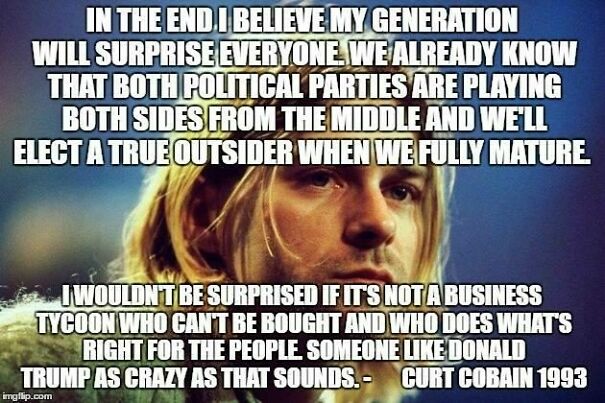
I think it's easy now to make fun of these doomsday theories but back then the internet was not very useful, it was expensive, it had a lot of issues working and there really wasn't much to do with it especially for the average consumer. I really don't think these were potshots but actually people assessing what was happening and extrapolating that based on logic and supporting evidence. Clearly wrong, but at the time in no way we're they off base or tone deaf.
In 1998 there was already plenty to do on the internet and while it was expensive it was accessible to and used by normal people. So a lot of these predictions were already not very smart.
Load More Replies...This reminds me of the time I came across a newspaper from the early 80s which featured two noteworthy articles on the same page, one of which was about what an awesome guy/national treasure Rolf Harris is, and the other of which was announcing that Elton John was getting married to a woman.With the benefit of hindsight it was a very weird thing to encounter.
Wow this is definitely strange, weird, funny with hindsight
Load More Replies...Why did I have to base every one of my '97-2000 investment decisions on the advice of Bob Metcalfe and Clifford Stoll!!
'The internet is a passing fad' and the same prediction repeatedly from several different people.
This just sounds like a bunch of boomers not understanding new tech and dismissing them preemptively.
People of today are saying time travel is impossible, but now I'm started to doubt it...
"By 2020, the internet will be filled with an infinite number of short videos of cute cats and of people doing stupid things." "Are you crazy...that would never happen!"
Not 90s but my grandad was offered the opportunity to bring TV to Ireland and said "no it will never catch on"
The only thing I predicted from the 90s is that being an adult must be awesome. Now I'll sign up for trial runs for time machines.
So, the takeaway that I'm getting here is that any prediction Clifford Stoll or Bob Metcalfe make is probably wrong XD
GM Sales Executive, to me in person in 2018: "Electric cars are just a gimmick."
Some of these are not predictions but mid 90s criticism of Apple, which was floundering back then. Way too many are from the some source
dont know if this is accurate but someone sent me this ( they spelt his name wrong which is making me think it might be fake if this is real then its sad that that prediction came true 04A0A54A-F...3-jpeg.jpg 

 Dark Mode
Dark Mode  No fees, cancel anytime
No fees, cancel anytime 








